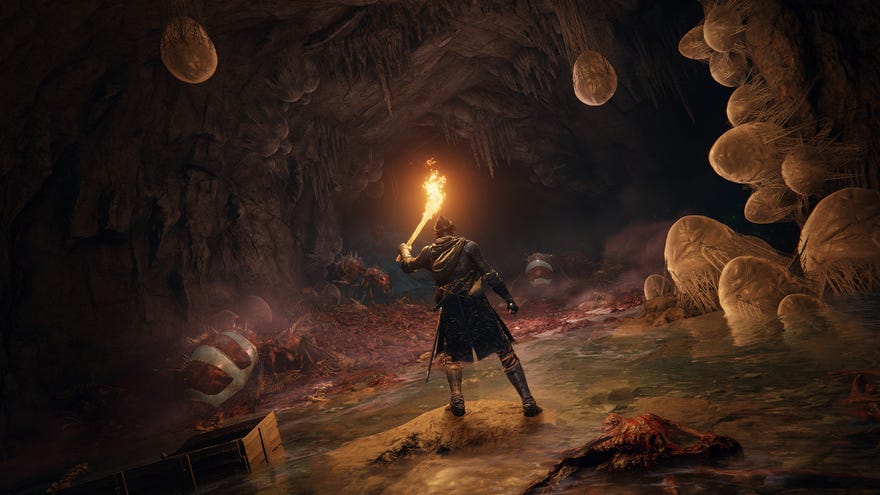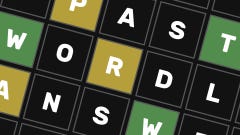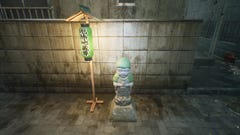Best Elden Ring classes: Which class should you choose?
The best choices of starting origin for beginners, those looking for an extra challenge, and everyone in-between
Which Elden Ring class should you choose when starting a new game? Like many From Software RPGs, Elden Ring gives new players a choice of 10 different starting character classes. Each class determines your starting stats, gear, and abilities. Beyond this foundation, you can build your character however you like, so picking a class doesn't lock you into a certain playstyle for your entire game - it simply gives you a slight headstart towards a certain playstyle if you wish.
While each of the Elden Ring classes only determines how you start, not how you go on, it's still an important choice. The starting armour of some classes, for instance, can only be acquired far later on in the game if you don't choose that class. In this guide we'll walk you through each of the classes in Elden Ring, explaining their starting stats and equipment, and the kind of playstyle they're best suited for so that you can pick the best class for your needs.
All Elden Ring classes
Each of the 10 origins in Elden Ring begins the game with a predefined set of attributes, stats, and starting items. In the table below, we've listed all 10 Elden Ring classes and their starting stats to help compare them:
| Origin | Level | Vigor | Mind | Endurance | Strength | Dexterity | Intel. | Faith | Arcane |
|---|---|---|---|---|---|---|---|---|---|
| Astrologer | 6 | 9 | 15 | 9 | 8 | 12 | 16 | 7 | 9 |
| Bandit | 5 | 10 | 11 | 10 | 9 | 13 | 9 | 8 | 14 |
| Confessor | 10 | 10 | 13 | 10 | 12 | 12 | 9 | 14 | 9 |
| Hero | 7 | 14 | 9 | 12 | 16 | 9 | 7 | 8 | 11 |
| Prisoner | 6 | 11 | 12 | 11 | 8 | 14 | 14 | 6 | 9 |
| Prophet | 7 | 10 | 14 | 8 | 11 | 10 | 7 | 16 | 10 |
| Samurai | 9 | 12 | 11 | 13 | 12 | 15 | 9 | 8 | 8 |
| Vagabond | 9 | 15 | 10 | 11 | 14 | 13 | 9 | 9 | 7 |
| Warrior | 8 | 11 | 12 | 11 | 10 | 16 | 10 | 8 | 9 |
| Wretch | 1 | 10 | 10 | 10 | 10 | 10 | 10 | 10 | 10 |
These starting stats are fixed for each class and points can't be redistributed at all in character creation. At this point in the game all you can choose beyond your character's origin is their appearance and the Keepsake they begin with. So while your choice of origin doesn't set in stone how you have to play the game, it is worth considering carefully which you like the look of most.
To help you pick, we've put together a quick description of each class below, along with the role to which we'd most recommend each one.
Best Elden Ring classes for beginners
If Elden Ring is your first Soulsborne game then you're not alone: the massive hype surrounding Elden Ring has drawn in a lot of players who've never touched a FromSoft title before. Of course, no-one's having an easy time of it in the Lands Between, but newbies who are just learning the ropes might appreciate starting out with a sturdy, balanced character, such as those found in the classes below.
Confessor
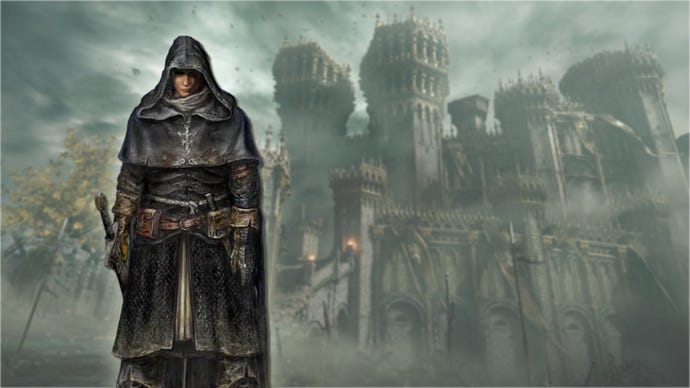
Starting weaponry: Broadsword, Finger Seal
Starting incantations: Assassin Approach, Urgent Heal
If it's a balanced beginners' class you're after, you won't do better than the Confessor. The Confessor has the highest starting level of any origin and starts the game with a decent shield, which is a valuable tool to have in hand if you're not quite up to speed with FromSoft combat yet. The Confessor has access to magic and is quite proficient in hand-to-hand combat, so you won't ever find yourself in a corner that you can't (theoretically at least) extract yourself from with that set of abilities. FromSoft themselves have described this origin as "jack-of-all-trades, master of none", and this seems like a very fair assessment: you start with no particular specialisms, but no glaring gaps in your build either.
Warrior
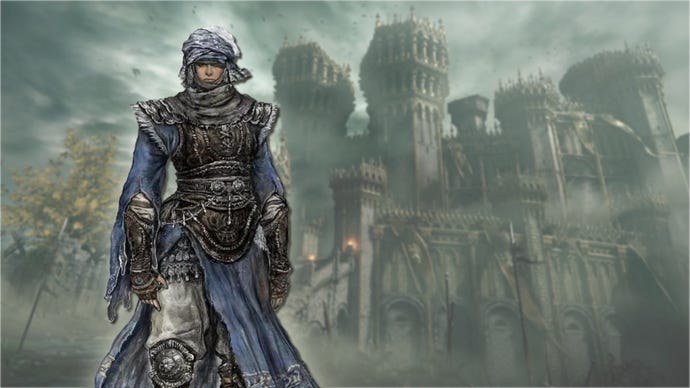
Starting weaponry: Scimitar x2
The Warrior has the highest Dexterity stat of any class, so if (like me) you're confident in your combat skills but less certain of your defensive abilities, this is a good origin to start with. Warriors enjoy decent stats in all other areas except for Faith and Arcane, which definitely constitute their blind spots; so if you're planning to do just a single run-through of Elden Ring then you do risk missing out on most of the game's best magic abilities this way. But if you're looking for a swift fighter to help you get your eye in then you should definitely consider giving the Warrior a go.
Hero
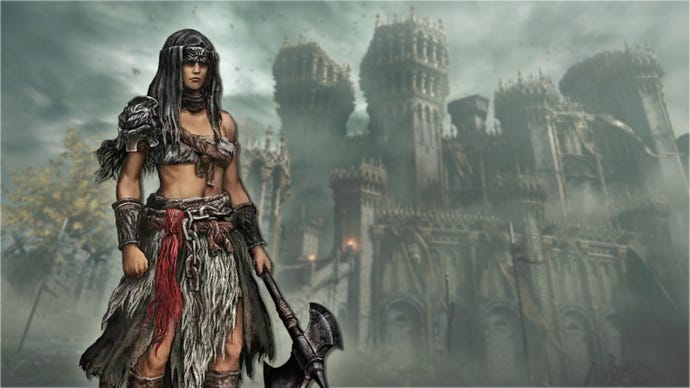
Starting weaponry: Battle Axe
The Hero has the highest Strength stat of any class. Personally, I never feel safer in a game than when I'm in control of a tank, and the Hero is the closest thing Elden Ring offers (though the Samurai isn't a bad shout for this purpose either). The Hero comes ready to batter away at their enemies with less concern for their exfil strategy, which is maybe not going to help you learn the delicate dance of Soulsborne combat, but at least will leave you less vulnerable in the short-term. On the downside, they have even less magical proficiency than the Warrior, and their comparatively low Dexterity means that they struggle to pick up many of the game's better weapons without additional stat investment.
Best Elden Ring classes for melee enthusiasts
We've already talked about the Warrior, a solid melee class who's good for testing the waters if you're just starting out with Elden Ring. However, if you're well-versed in Soulsborne combat and know you want to get right down to it with some good old smashy-bashy, or you're looking for a slightly more challenging melee-heavy build to enjoy a subsequent playthrough, try one of these origins on for size.
Vagabond
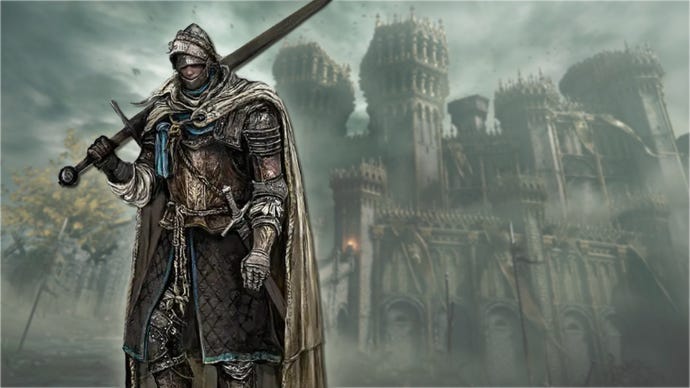
Starting weaponry: Halberd, Longsword
The Vagabond begins with a balanced, physically-oriented stat set-up that can be easily moulded to fit any melee speciality of your choosing. Though they boast the highest starting Vigor stat, there are a couple of downsides to the Vagabond at the very start: their armour over-encumbers them a little, meaning you'll probably want to unequip one or two pieces to allow them to dodge effectively; while their weaknesses in Intelligence, Faith, and Arcane mean that they start with no inherent ability to do magic. However, a little forward planning and wise investment of stat points ought to take care of their shortcomings early on in the game, at which point you can start to build them to your liking. As just one example: invest your first few points in one of their mental traits and a Vagabond can quickly become a "spellsword" specialist akin to the Prisoner, but with less punishing starting conditions.
Samurai
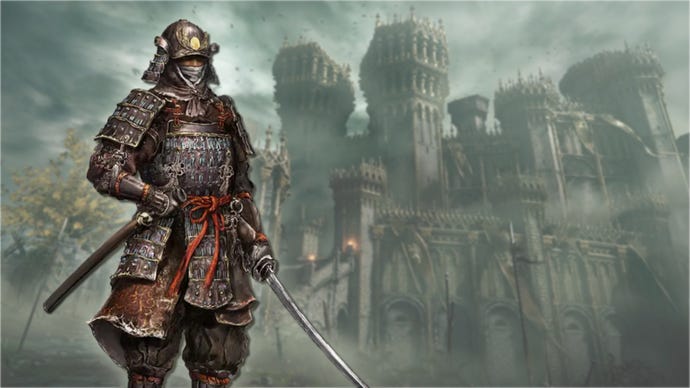
Starting weaponry: Long Bow + Bone Arrow, Uchigatana
None of the Samurai's starting stats are world-beating, but they're decently balanced and, for what it's worth, do technically have the highest starting Endurance of any class in the game. Along with the Bandit class they're one of just two ranged combat specialists, which can be a uniquely fun challenge, but worry not as they also come equipped with a katana that they can happily wield for some heavy melee attacks. This makes them the only class in the game that comes equipped to switch up their combat range on the fly, which is supported by their prowess in Endurance and Dexterity (although that does come at the expense of them being slightly squishy).
Best Elden Ring classes for magic fans
The Confessor is a good choice of starting class if you're interested in test-driving Elden Ring's magic wielding skills, but if you really want to lean into the mage build, there are a couple of classes who begin with a knowledge of Incantations and Sorceries, allowing you to delve right into higher-level spellcasting in combat right away.
Astrologer

Starting weaponry: Astrologer's Staff, Short Sword
Starting sorceries: Glintstone Arc, Glintstone Pebble
Possessed of the game's highest base Intelligence and Mind stats (making them the only origin to have two bests going for them), the Astrologer starts out with a damage modifier that pairs nicely with their high-level mastery of Sorceries. Ironically, they start off with relatively low Faith and Arcane stats, but don't be fooled: this origin is the archetype to opt for if you want to put together a traditional Mage build. Their physical attributes aren't stunning but they do have a decent bit of Dexterity going for them and a short sword on-hand for emergencies, so this is the origin to opt for if you want to focus on magic but not be entirely reliant on it.
Prophet
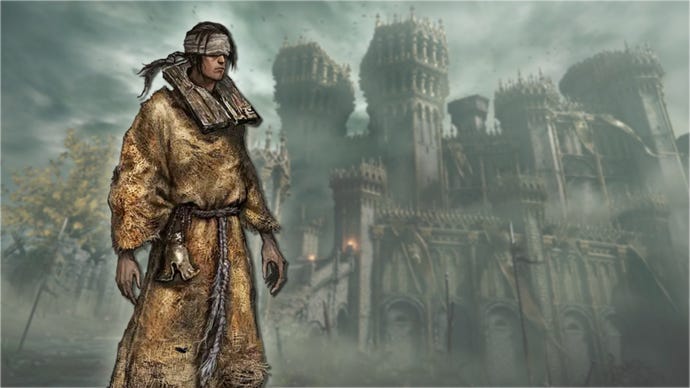
Starting weaponry: Finger Seal, Spear
Starting incantations: Beast Claw, Heal, Oh Flame!
Boasting the highest base Faith stat in the game, Prophets therefore start with the best grasp of Incantations. Prophets are very similar to Astrologers in many ways, and though lower Endurance and Dexterity mean that evading harm in combat will be more difficult, they fare slightly better in melee at the very start of the game. However, of the two magic-focussed classes, this is the one that comes into its element later on. Quite literally: the Prophet's high Faith can be built upon to give them access to Fire and Holy elemental attacks, self-healing spells, and other utilities that are well worth the wait.
Best Elden Ring classes for a challenge
Elden Ring, in line with its FromSoft predecessors, doesn't feature difficulty settings. However, that doesn't mean that you can't up the challenge for yourself based on the character you choose to play as. If you're a Soulsborne veteran, or you're looking for a way to change things up on a replay, these classes are the ones to pick if you not only don't want your hand held, but think it would be pretty cool to have your hands lopped off altogether and have to play using your feet instead. Metaphorically, of course.
Prisoner
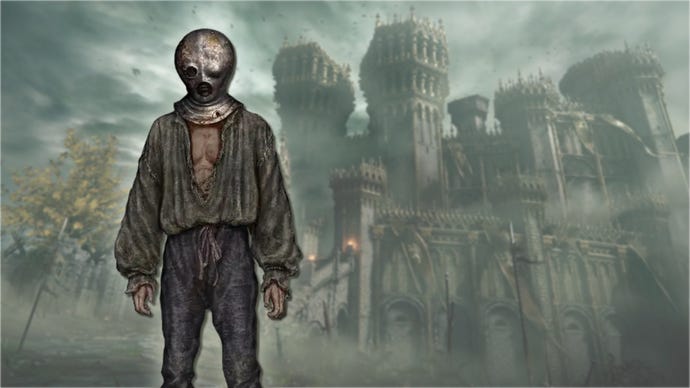
Starting weaponry: Catalyst Staff, Estoc
Starting sorceries: Magic Glintblade
A kind of hybrid of the Warrior and Astrologer classes, the Prisoner can be seen as a counterpart to the Confessor. While the Confessor is the ideal starting class due to their mixed approach, the Prisoner nevertheless begins at something of a disadvantage thanks to their low starting level, but can leverage their dual specialism in Intelligence and Dexterity to scale their sorcery and swordsmanship off each other to deadly effect. Described as a "late bloomer", the Prisoner challenges you to endure some difficult times in the early game in exchange for some great fun later on once you get hold of the advanced weapons and spells that make the most of their stats. Again, it's not necessarily an ideal origin for a first playthrough, but brilliant for seeing what the game has to offer on subsequent runs.
Bandit
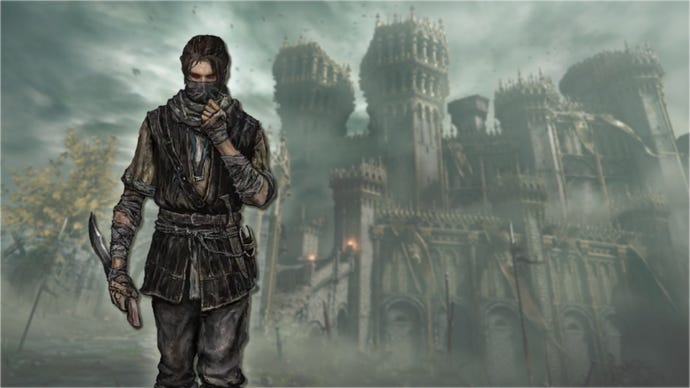
Starting weaponry: Knife, Short Bow + Bone Arrow
For a stealth challenge with a ranged combat build, try the Bandit. There's some crossover here with the Samurai, who's the other archer class; but while the Samurai is prepared to go melee with their katana, the Bandit relies far more on avoiding confrontation altogether. Elden Ring is designed such that you can avoid combat to a surprising degree, and outside of mandatory boss fights you can almost always take what you want and sneak away rather than engaging in a fight. The Bandit is further helped in this endeavour by having the highest base Arcane stat, which gives them the best Item Discovery rate. Most players probably wouldn't want to attempt this on a first playthrough, especially since combat is arguably the point of Soulsborne games; but on subsequent replays, trying out the Bandit can show you a whole new perspective on the game.
Wretch
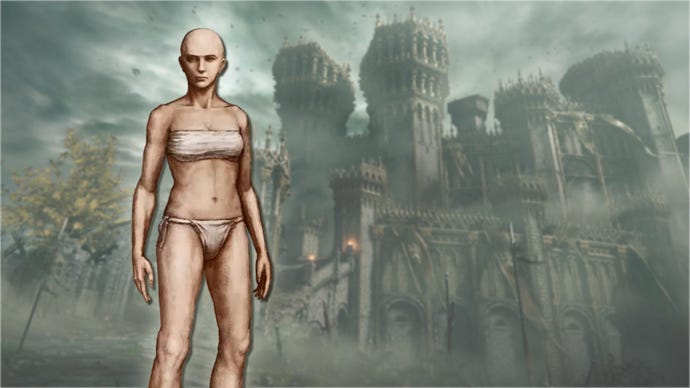
Starting weaponry: Club
Players already familiar with Dark Souls' Deprived class (or the similar Waste of Skin class in Bloodborne) will know what to expect from the Wretch. Beginning with no armour and only a basic club for a weapon, the Wretch has a flat 10 rating in every stat and begins the game at level 1. This class is specifically designed for players taking on the game after already beating it at least once, and the significant drawbacks at the start come with a major benefit in that you can tailor your Wretch build over time to encompass basically anything you want. It's a sandboxy, creative origin for you to really play around with, but only really workable once you know how to do the basics without getting flattened.
To survive long in the Lands Between, your character will need the best arsenal they can lay their hands on, so be sure to check out our guide to the best weapons in Elden Ring so you know what to look out for. Similarly, a good set of armour is invaluable; see our page on the best armor to use early on in Elden Ring for ideas.
